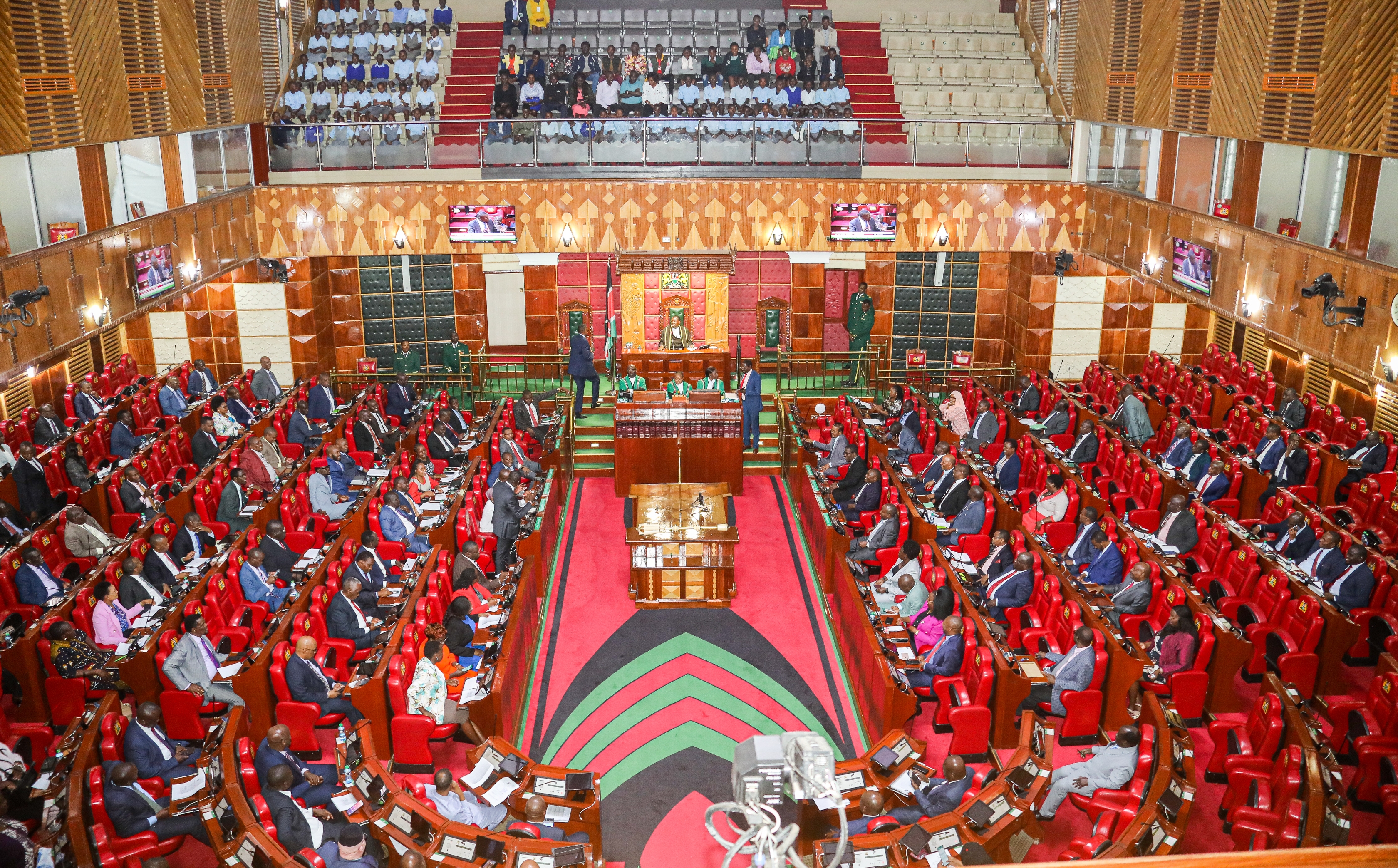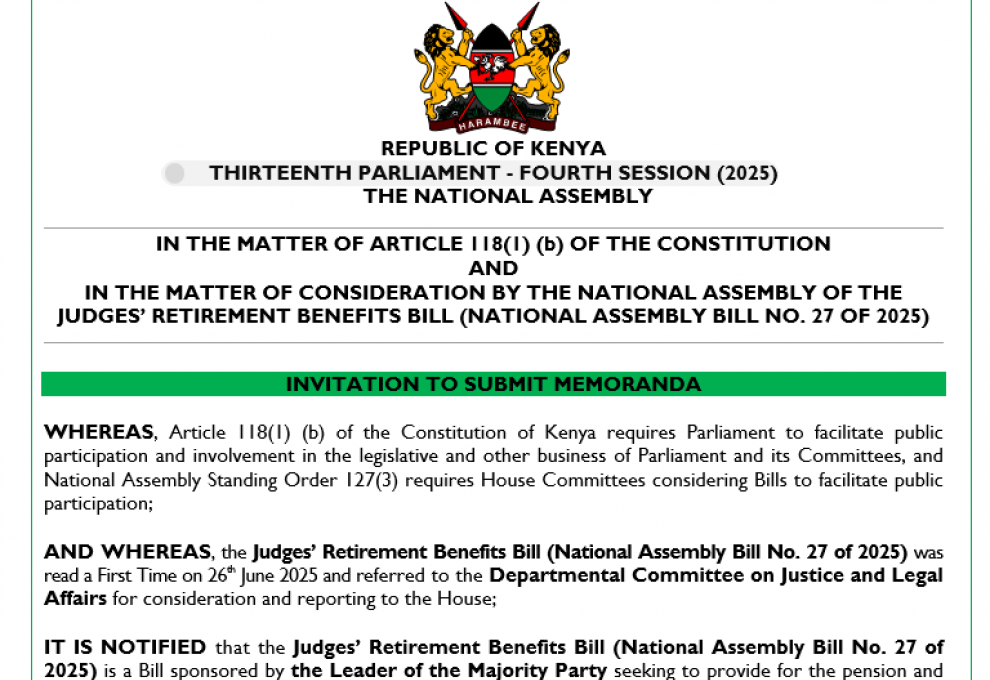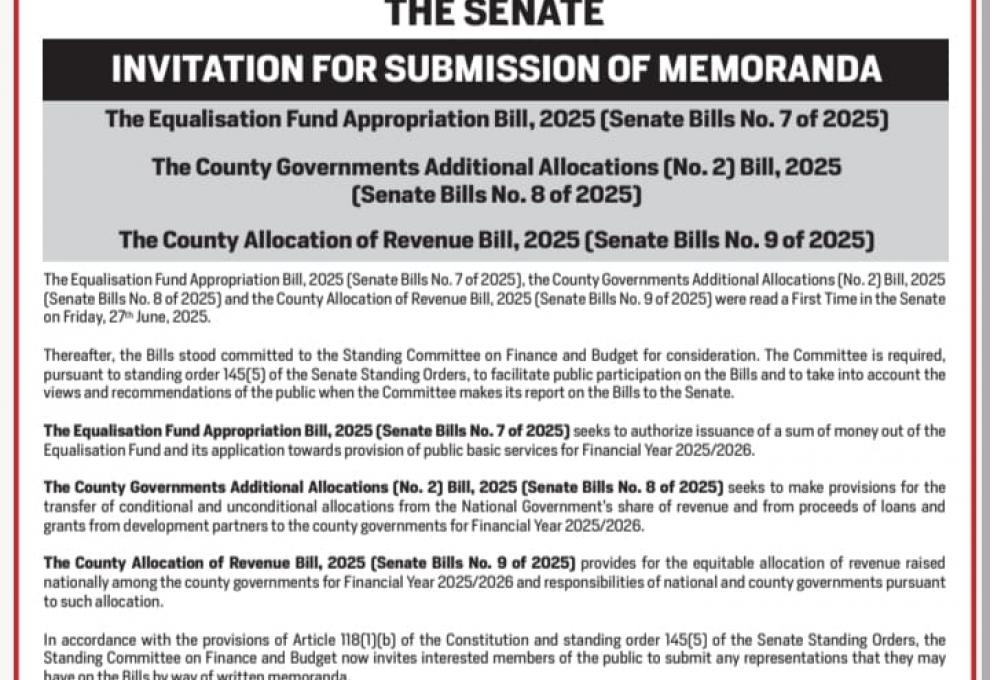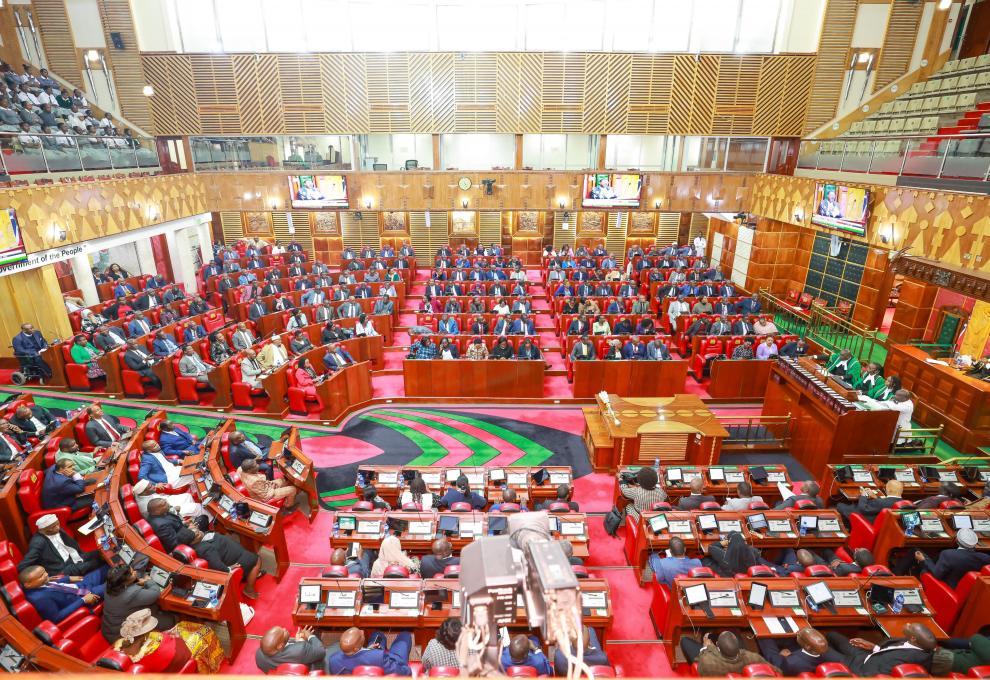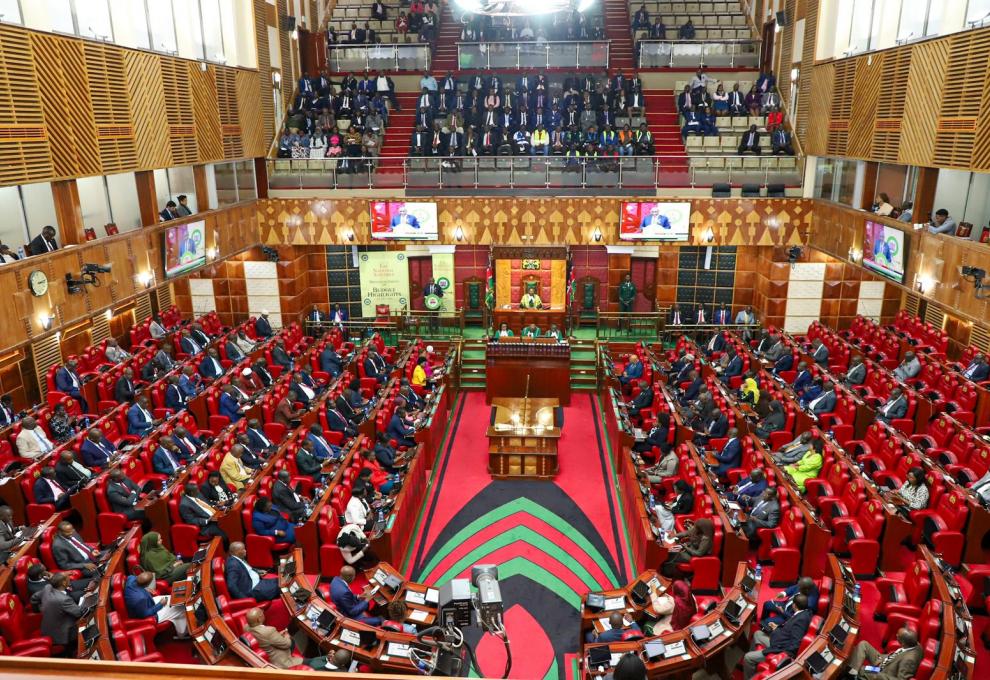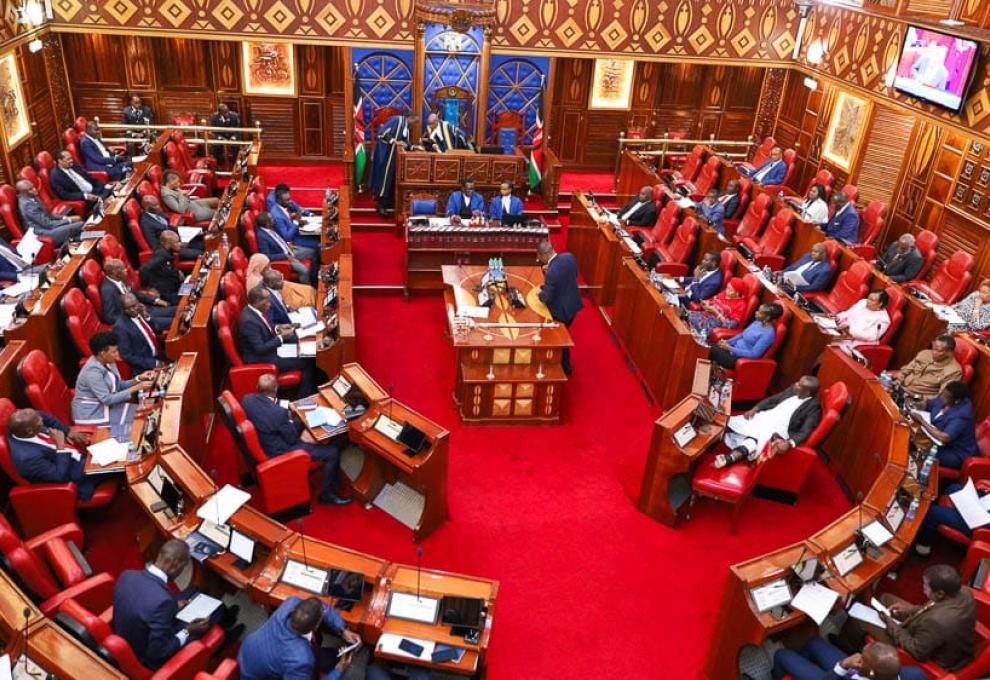𝐒𝐏𝐄𝐀𝐊𝐄𝐑 𝐖𝐄𝐓𝐀𝐍𝐆'𝐔𝐋𝐀 𝐆𝐔𝐈𝐃𝐄𝐒 𝐇𝐎𝐔𝐒𝐄 𝐎𝐍 𝐀𝐌𝐄𝐍𝐃𝐌𝐄𝐍𝐓𝐒 𝐓𝐎 𝐅𝐈𝐍𝐀𝐍𝐂𝐄 𝐁𝐈𝐋𝐋
The Speaker of the National Assembly the Rt. Hon. (Dr.) Moses Wetang’ula has advised the House against introducing amendments to Bills which commit the Executive without taking cognizance of the fiscal policy and considerations of the National Government.
In a Communication to the House on Tuesday, Speaker Wetang’ula clarified that his directives were not intended to curtail the legislative mandate of the House, but rather to ensure that the proposed amendments were in line with the provisions of Article 114 of the Constitution.
“Hon. Members, I give this direction with full consciousness that the intention of Article 114 of the Constitution is not to curtail the legislative mandate of the House. The Article merely seeks to ensure that, in as much as this House reserves the power to determine revenue raising revenues, it does not commit the Executive without taking cognizance of the fiscal policy and considerations of the National Government”, a part of his Communication read.
The Standing Orders of the National Assembly as well as the Constitution prescribes the manner in which ‘Money Bills’ are to be handled. Further, Section 39 of the Public Finance Management Act, 2012, states in part that “any recommendations made by the relevant Committee of the National Assembly or resolution passed by the National Assembly on revenue matters shall consider the impact of proposed changes on the composition of the tax revenue with reference to direct and indirect taxes.
Noting that he had only allowed proposed amendments from 21 legislators, he told the House that when considering any matter that has a financial implication on public funds, the House is bound by the provisions of Article 114(2) of the Constitution.
Speaker Wetang’ula further underscored the need for legislators to abide by the Standing Orders when introducing amendments during the Committee of the Whole House. He reminded the Members that in an earlier guidance to the House, he had stipulated that Members were at liberty to submit their amendments to the Clerk, but only in the manner provided for in the Standing Orders.
“Hon. Members, Standing Order 133 (procedure in Committee of the Whole House on a Bill) provides that no amendment would be moved to any part of a Bill by any Member, other than the Member in charge of the Bill, unless written notification is given to the Clerk 24 hours before the commencement of the sitting.”, the Speaker stated.



